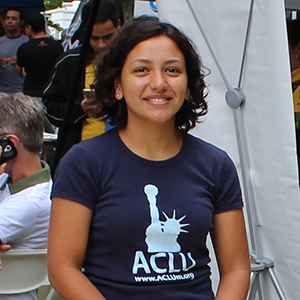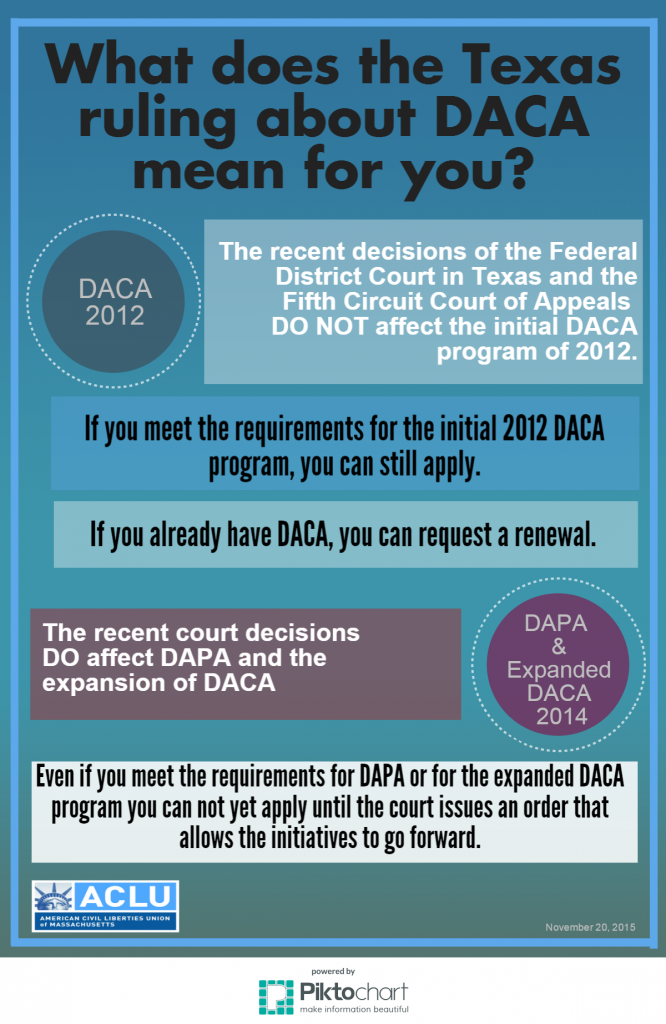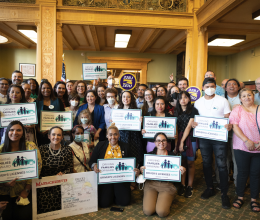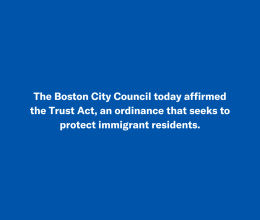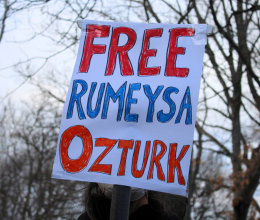
Today marks the first anniversary of President Obama’s announcement of his administration’s executive actions to mitigate the effects of deportations in the current immigration system. On the night of November 20, 2014, the President announced the expansion of the Deferred Action for Childhood Arrivals (DACA) and the creation of the Deferred Action for Parents of Americans and Lawful Permanent Residents (DAPA).
These two programs provide temporary legal status to certain groups of people. The expansion of DACA would cover people who entered the United States before the age of 16 and who have lived in the United States continuously since January 1, 2010. This initiative extends the coverage for people who benefited from the creation of the original DACA in June 2012, which covers those who entered the United States before the age of 16, have lived in the United States continuously since June 15, 2007 and were under the age of 31 as of June 15, 2012.
DAPA is a new program that would allow undocumented parents of U.S. citizens or legal permanent residents to apply for a work permit and protection from deportation, if the person has lived in the United States continuously since January 1, 2010.
However, until today, of the estimated 4.9 million people who could benefit from these programs, no one has been able to apply. Court decisions have blocked their implementation, while millions of immigrants continue living in fear of being separated from their families and hundreds are being deported daily.
The judicial saga that followed President Obama’s announcement began when 26 states[1] in a coalition led by Texas filed a lawsuit against the federal government[2] challenging the implementation of DAPA and the expansion of DACA. On February 16th of this year, two days before the set date to start receiving applications for these two programs, a judge from a Federal District Court in Texas, Andrew S. Hanen, ruled in favor of the states, putting a halt to the implementation of DAPA and the expansion of DACA. In response to this ruling, the administration appealed to the United States Court of Appeals for the Fifth Circuit, but last week, on November 9, the appeals court upheld the lower court’s decision to block the implementation of DAPA and the expansion of DACA.
The court’s decision was not a surprise to the administration. The Fifth Circuit is known as one of the most conservative in the country. However, it shows the politically charged environment that surrounds the implementation of these programs and the polarization that immigration awakens.
The administration announced it will appeal the decision to the United States Supreme Court, but the Supreme Court’s jurisdiction is not mandatory and it could refuse to hear the case, leaving intact the current preliminary decision.
Meanwhile, it is important to know that although the original DACA program is running, the federal government is not accepting applications for the extension of DACA or for DAPA.
Until the Supreme Court hears and decides on the implementation of DAPA and the expansion of DACA, thousands of people that contribute to the economic growth and social development of the country will be deported. Today, instead of celebrating the anniversary of the decisions that could have rewarded the contributions of 4.9 million immigrants, what we will be officiating is the continuation of a broken immigration system.
Nathalie Rengifo Alvarez is a Public Advocacy & Spanish Language Fellow at the American Civil Liberties Union of Massachusetts.
[1] STATE OF TEXAS; STATE OF ALABAMA; STATE OF GEORGIA; STATE OF IDAHO; STATE OF INDIANA; STATE OF KANSAS; STATE OF LOUISIANA; STATE OF MONTANA; STATE OF NEBRASKA; STATE OF SOUTH CAROLINA; STATE OF SOUTH DAKOTA; STATE OF UTAH; STATE OF WEST VIRGINIA; STATE OF WISCONSIN; PAUL R. LEPAGE, Governor, State of Maine; PATRICK L. MCCRORY, Governor, State of North Carolina; C. L. “BUTCH” OTTER, Governor, State of Idaho; PHIL BRYANT, Governor, State of Mississippi; STATE OF NORTH DAKOTA; STATE OF OHIO; STATE OF OKLAHOMA; STATE OF FLORIDA; STATE OF ARIZONA; STATE OF ARKANSAS; ATTORNEY GENERAL BILL SCHUETTE; STATE OF NEVADA; STATE OF TENNESSEE.
[2] UNITED STATES OF AMERICA; JEH CHARLES JOHNSON, Secretary, Department of Homeland Security; GIL KERLIKOWSKE, Commissioner of U.S. Customs and Border Protection; RONALD D. VITIELLO, Deputy Chief of U.S. Border Patrol, U.S. Customs and Border Protection; SARAH R. SALDANA, Director of U.S. Immigration and Customs Enforcement; LEON RODRIGUEZ, Director of U.S. Citizenship and Immigration Services
